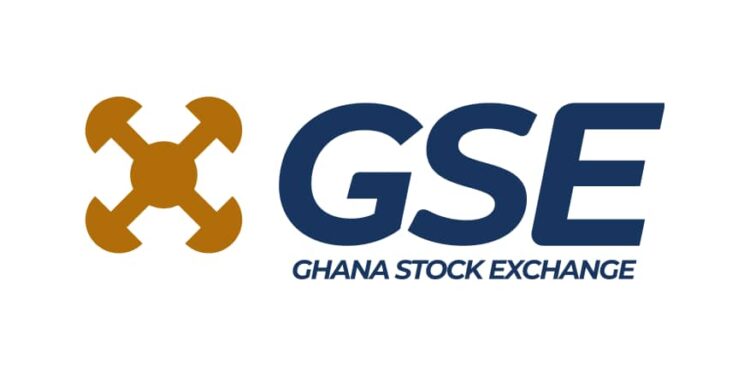Ghana’s Equities Shine in Regional Comparison as SIC, Gold Drive Portfolio Gains
Ghana’s equities market continues to outperform its continental peers, with the Ghana Stock Exchange Composite Index (GSE-CI) posting an impressive 24.80% year-to-date return as of April 11, 2025, extending the bullish momentum recorded since the beginning of the year.
This remarkable performance places Ghana ahead of key African stock markets such as Nigeria’s NGSE ASI (+1.59%), South Africa’s JSE ASI (+2.75%), and Egypt’s EGX-30 (+3.60%), according to comparative data from Bloomberg. Only Côte d’Ivoire’s BRVM comes close with a YTD growth of 4.12%.
But it’s not just the composite index numbers telling the story beneath the headline figures lies a market buoyed by selective investor optimism, resilience in insurance and gold-linked assets, and a cautious yet encouraging macroeconomic recalibration.
SIC Leads the Charge with a 122% YTD Gain
The undisputed star performer is SIC Insurance Company Ltd., which continues to astonish market watchers with a year-to-date return of 122.22%. From a stock price of GHS 0.27 at the start of 2025 to GHS 0.60, the insurer has been on an unrelenting upward trajectory. SIC’s surge is indicative of investor confidence in Ghana’s insurance sector reforms and a broader search for defensive, dividend-yielding plays in an uncertain macro environment.
Alongside SIC, CAL Bank (+105.71%), GOIL (+15.13%), and SCB Ghana (+13.30%) have contributed to broad-based gains in financial and energy stocks, despite weak activity levels in the broader commodities market.
Trading Value Plunges, But Retail Interest Remains
Despite the bullish equity metrics, caution signs linger. Total value traded fell by a significant 45.63% week-on-week, from GHS 42.09 million to GHS 22.88 million, even as total volume traded rose to 3.14 million shares, up by 26.71%.
The divergence between value and volume underscores a market increasingly dominated by retail trading activity, particularly in penny stocks or high-volume equities like MTN Ghana, which alone accounted for over GHS 3.7 million in trade value.
Interestingly, Standard Chartered Bank Ghana (SCB) topped the charts in value traded, recording GHS 8.4 million, suggesting select institutional positioning in more fundamentally sound counters.
SBL Recommendations Point to Long-Term Buys
SIC Brokerage’s investment desk remains optimistic about the long-term prospects of Ghanaian equities. Their recommended picks include:
- MTN Ghana – Long-term buy
- BOPP & TOTAL – Long-term buy
- SIC, GCB, and SOGEGH – Buy
- UNIL (Unilever Ghana) – Hold
This reflects a strategic bias towards consumer, telecoms, financial, and oil-linked stocks—sectors expected to benefit from post-debt restructuring fiscal easing and rising consumer demand.
Equities Outpace Commodities as Cocoa, Crude, and Gold Struggle
Interestingly, while Ghana’s equities soar, the commodities market is underperforming—a reversal of traditional dynamics. Brent Crude fell 13.84% YTD, Gold is down 22.91%, and Cocoa futures have slumped by 27.77%, according to data from Bloomberg and ICCO.
This suggests investors are rotating away from commodities and towards equities as macro conditions stabilize. However, Ghana’s dependence on these export commodities for fiscal revenue means there could be medium-term challenges to external balances and budget financing.
March Market Review: A Tale of Growth and Fragmentation
A look at the March 2025 summary shows the GSE-CI rose by 27.19% YTD, with the GSE-Financial Stock Index up 28.50%. Market capitalization hit GHS 136.99 billion, reflecting a 5.15% increase over the previous year. But total value traded plummeted by over 35.59% year-on-year, further highlighting the thinning of high-value transactions.
Despite this, a wide basket of stocks recorded gains in March including GLD, TOTAL, ACCESS, BOPP, SCB, EGH, ECL, MTNGH, ETI, SIC, SOGEGH, RBGH, among others—while only UNIL, CLYD, and GOIL showed declines, according to SIC’s monthly breakdown.
Currency Pressures Ease Marginally but FX Risk Persists
In the currency markets, the Ghanaian cedi showed slight signs of stabilization. The USD/GHS rate eased to GHS 15.52 from GHS 15.54 the previous week, reflecting a 5.28% YTD depreciation. The British pound saw a sharper decline (-9.13% YTD), while the Euro lost 13.47%, and the Chinese Yuan dipped by 5.39% against the cedi.
Interestingly, the CFA Franc recorded a 15.56% appreciation, reflecting a stronger West African monetary block, perhaps aided by inflation management and better current account positions in the WAEMU region.
Outlook: Sustainability of Gains Hinges on Policy and Sentiment
The key challenge for Ghana’s equities market will be maintaining momentum amid macro uncertainty. With the IMF program still unfolding and fiscal consolidation underway, investor optimism could be tested by delays in structural reforms or global economic shocks.
Moreover, declining trading value and over-reliance on a few outperforming stocks like SIC and CAL raise concerns about market depth and concentration risk. If institutional investors do not return in greater numbers, the rally may be limited by liquidity constraints.
Yet, if reforms around domestic resource mobilization, public sector accountability, and export competitiveness are sustained, Ghana could cement its position as one of Africa’s most attractive frontier markets for equity investors.
Conclusion
The Ghana Stock Exchange, led by SIC’s breakout performance and solid gains in consumer and financial stocks, continues to deliver alpha in a region still grappling with macro imbalances. However, the road ahead demands careful navigation—especially as falling commodities and fragile currency movements create a fragile but fertile terrain for investors seeking both yield and resilience.







